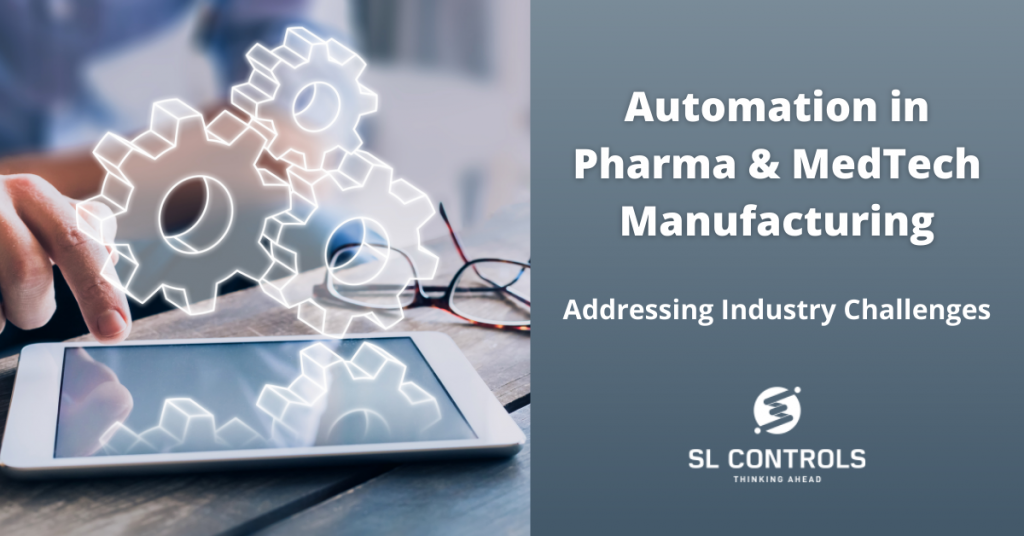There are a number of challenges facing the pharmaceutical and medical device manufacturing industries. Those challenges include labor shortages and developing supply chain resilience. There is also an increasing requirement to become more agile, where production facilities can react faster to changing demands and expectations.
Pharmaceutical and medical device companies also have to deal with changes in medical device regulations, such as the recently introduced EU MDR, while there are always pressures to improve productivity and profitability.
Automation technologies are a crucial part of the solutions to these challenges. This includes everything from robotic process automation (RPA) solutions to advanced equipment systems integration to the development of future-proof cloud-to-edge technology architectures.
It isn’t just about challenges, either, as there are also opportunities that become available to manufacturers through advanced automation solutions.
Below are some of the ways automation and other Industry 4.0 technologies are helping pharmaceutical and medical device manufacturers address current challenges and take advantage of the opportunities that exist
Improve Current Processes Without Increasing the Existing Footprint
Doing more with less is often the objective of pharmaceutical and medical device manufacturers. Automation and other Industry 4.0 solutions make this possible.
By integrating equipment and systems throughout all stages of the production process, making better use of data, and utilizing advanced, hybrid cloud technologies, it is possible to optimize existing manufacturing processes within existing footprints and with a reduced labor requirement.
Minimize New Product Introduction (NPI) Timescales
The experience of Covid-19 is likely to have changed the pharma and MedTech industries considerably and irrevocably. An example of a driver of these changes is also one of the biggest success stories of the pandemic – the introduction of vaccines. What we saw was the industry developing, testing, obtaining regulatory approval, and moving to at-scale manufacturing at a pace never seen before.
This experience demonstrated what is possible, and it presents potentially positive commercial opportunities for life sciences sector companies.
Not every new medical device product or drug will benefit from such rapid development and commercialization, but where they are applicable, automation technologies and solutions will play a key role.
Minimizing Engineering Time
Automation can reduce engineering time, enabling the rapid deployment of solutions and processes that deliver immediate production and business benefits.
An example is the use of cloud technologies to develop new software solutions for pharmaceutical and medical device manufacturers. When cloud platforms like Microsoft Azure are used, the solutions become repeatable on multiple deployments, automating the process of rolling out the solution to additional lines and facilities.
Digital Twin Technologies Enhancing Agility and Flexibility
Digital twin technologies are suitable for a range of applications in modern pharmaceutical and medical device manufacturing facilities. This includes the implementation of a preventative maintenance approach, where maintenance work is completed based on real-world requirements and predicted component failures rather than pre-determined timescales and unexpected downtime caused by actual failures.
Digital twin technologies can also be used to enhance agility and flexibility in production environments. For example, production processes, machines, and equipment can be replicated digitally in the cloud, so engineers can work on modified or expanded designs. Those designs can then be validated in the virtual simulation, enabling rapid deployment when the amended operations are required.
The Future of Automation
Automation has been important in manufacturing for many decades now, but we are entering a new era with the availability and capabilities of Industry 4.0 technologies. This includes everything from the Industrial Internet of Things (IIoT) to smart manufacturing methodologies to digital transformation strategies.
Automation isn’t the only solution to the challenges faced by manufacturers in regulated industries. However, it is the central component in many and a crucial consideration in most.

